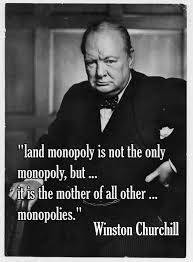I have
always loved the folk-song The Whistling Gypsy. In fact, I like it so much
that I have been known to sing it in those situations of cultural exchange
where, far from home and in a foreign language zone, you are called on to share
something. But I have always been rather disappointed by the heroine who,
although following the gypsy rover, convinces her father to accept her decision
by pointing out that he is 'Lord of these lands all over'.
But, like
many aspects of folk culture, it occurred to me recently that this is a song of
great subtlety. It is not that the gypsy is also a land-owner and therefore
deserves the hand of the lady whose heart he has won, rather he considers
himself lord of the land that he roves through. He has, in other words, gone
through exactly the sort of mental reinterpretation we need to go through as a
society. This takes some effort because it requires us to throw off the shackles of a thousand
years of feudalism.
Andy
Wightman has done great service in the case of Scotland in challenging the
legal effort that has been invested in constructing the reality of land
ownership to the extent that the land we should share is littered with
'Trespassers will be prosecuted' signs and the authors of those signs are paid large
sums of EU money for the privilege of having sole use of what is our national
economy's most valuable resource. His books Who
Owns Scotland links the rise of the lawyer's trade and their wealth to the
need of warlords to provide written justification for their ill-gotten gains,
and in an era when literacy was a rare privilege a legal document could exclude
almost everybody from the argument.
This is
my reason for supporting a Land Value Tax and this is what I will be arguing
when I come up against Vince Cable on Tuesday evening at an RSA Screens event.
He and John Christensen will find other reasons to support the taxation of
land, some pragmatic and some rather dangerous--based in arguments about the
'inefficient' use of land. Property development is perhaps the most egregious
current example of private profit at social cost and returning a large
proportion of the gain from planning uplift to the community is an immediately
appealing consequence of introducing LVT.
But for
me our alienation from the land—our economy’s most valuable natural resource—is at the root of our alienation from nature itself and
from our own freedom. This does not mean that we all need to be peasants but it
does suggest that the way of the whistling gypsy may be a surer route to
happiness than the way of the suited business executive or the
zero-hours-contract worker for whom he creates a job.
.
Tweet

I like this post very much. I hope it's not too cheeky to post a link to my own blog, on the theme of land ownership. It's a proposal to alter the foundational basis of land ownership in the UK.
ReplyDeletehttp://www.moodindex.co.uk/wordpress2010/wordpress/2013/08/ownership-as-trust/